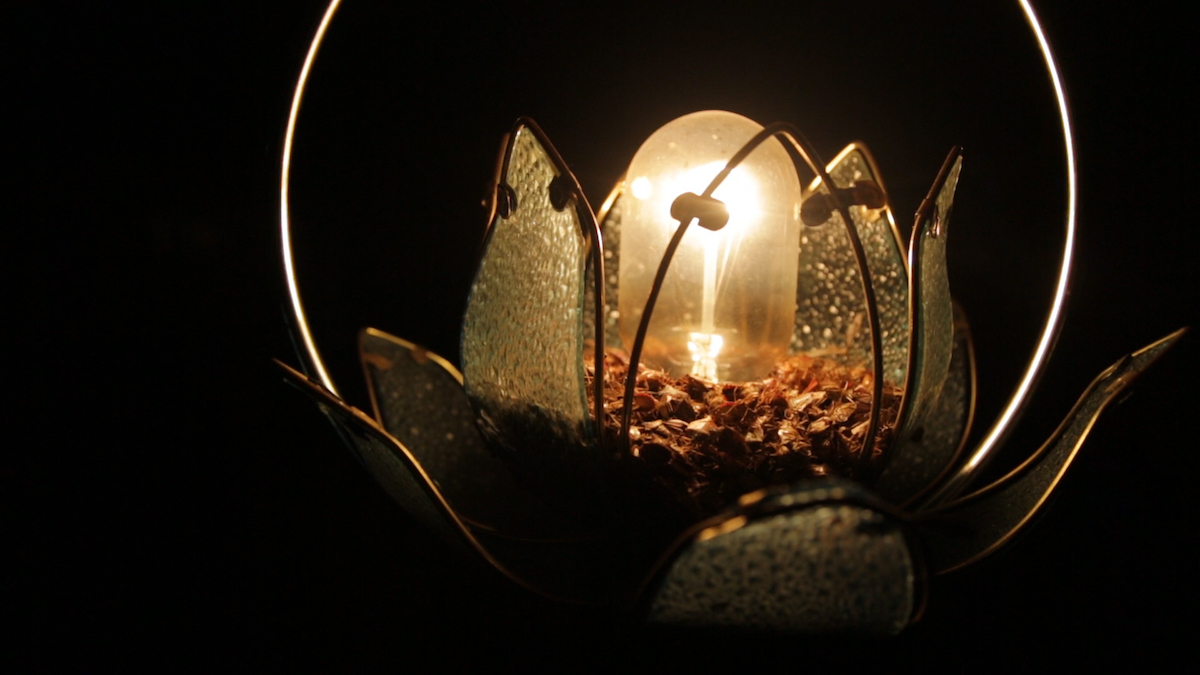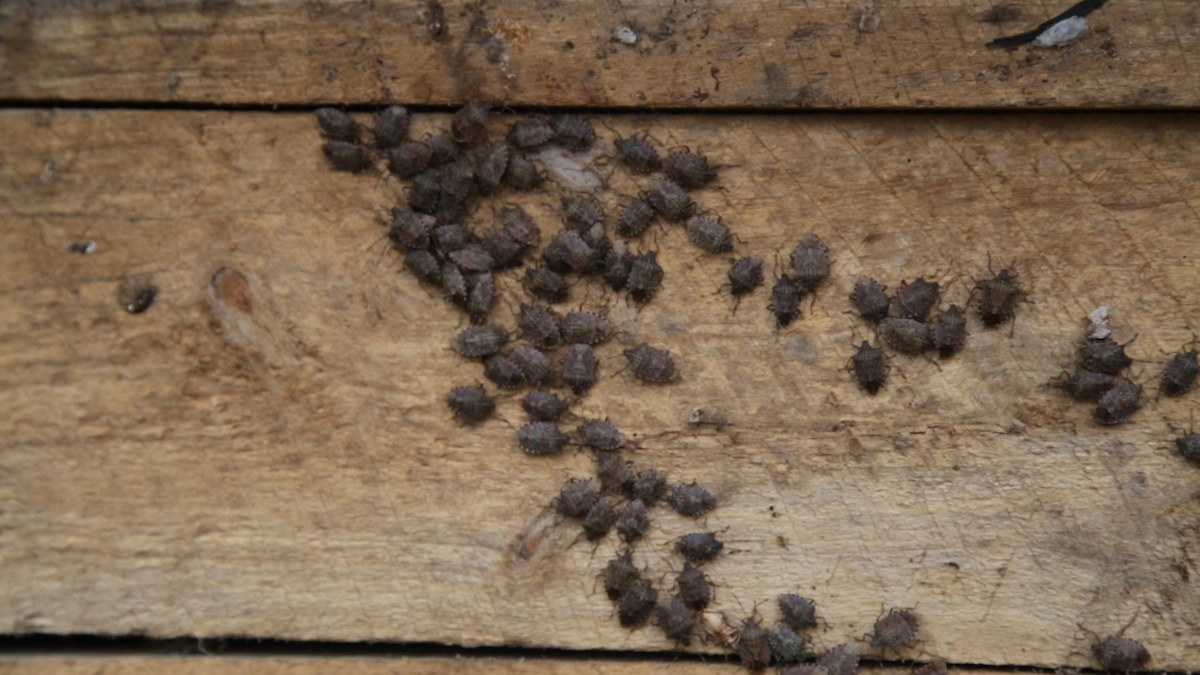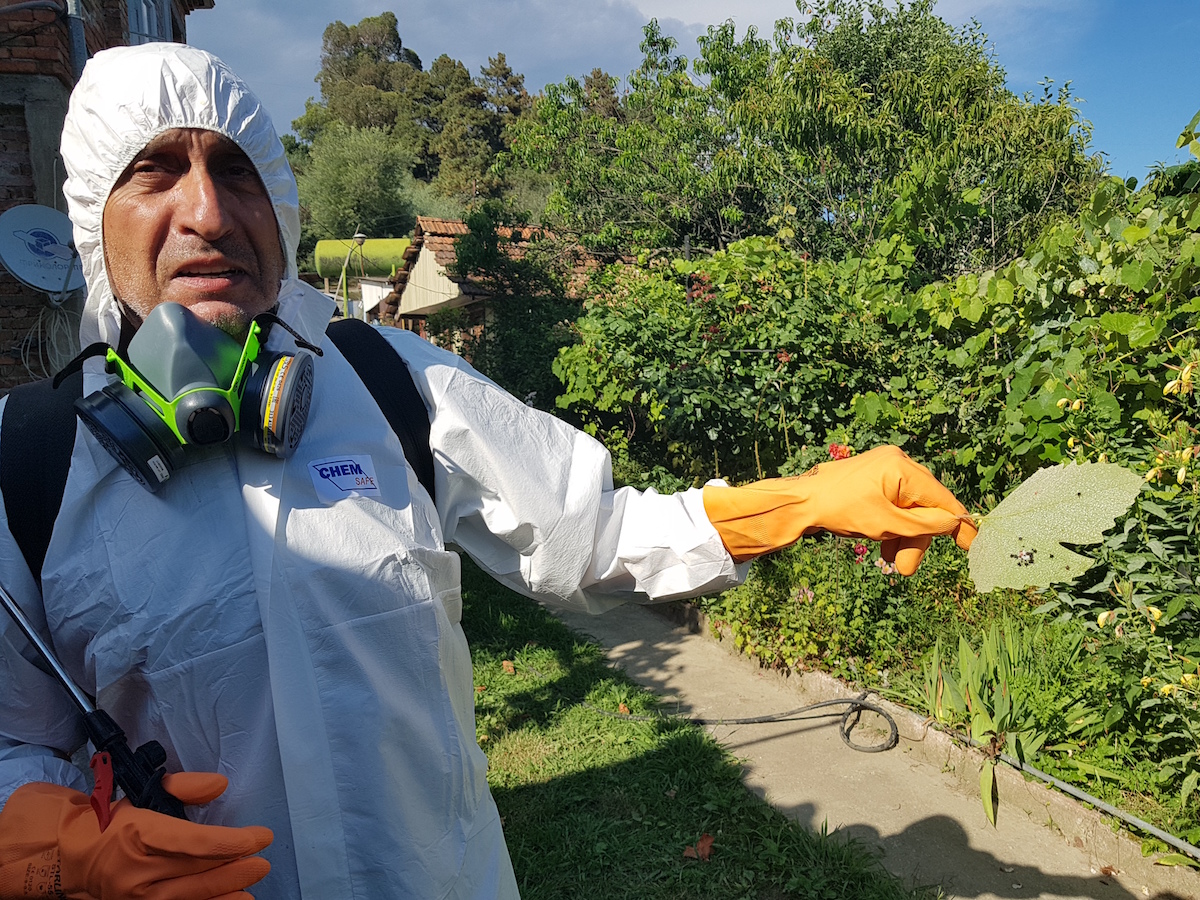Brown marmorated plague: the war on stink bugs in Abkhazia

This is the third consecutive year that Abkhazia is struggling with an agricultural parasite – the brown marmorated stink bug. Defeat in this battle could spell catastrophe for the Republic’s agricultural sector.
Know your enemy
The brown marmorated stink bug is an insect the size of a small button. It affects more than 140 species of crops, and winters in living quarters, climbing into the crevices behind baseboards, under wallpaper and other hidden places in homes and apartments. It doesn’t bite or buzz, but competes for human sources of nutrition.

In 2017 more than 70 per cent of walnut plantations in Abkhazia were damaged due to colonies of stink bugs invading orchards and feeding on the germinating growth, preventing it from developing into full-fledged plants.
Blackened and hard as wood mandarins, crumbling feijoa, rotting persimmon – all this was a common sight in Abkhaz in winter 2017.
Black Cohosh disappoints
People are sounding the alarm, but agriculture officials and scientists are reassuring the people, arguing that this is a seasonal phenomenon. Experts say that the bug is not a new species for Abkhazia, but a habitual insect that has changed the nature of its behavior due to global climate change.
“This is an ordinary forest bug,” said Roman Dbar, director of the Institute of Ecology of the Academy of Sciences of Abkhazia, “the most innocuous insect that lives in our forests. You just need to plant a Black Cohosh plant in the garden, and the insects will disappear.”
But the locals tried many times – neither Black Cohosh nor usual bug repellent sprays had an effect on the bug.
Meanwhile, specialists in Georgia and Russia had noted the bug’s presence on their territories. An active struggle with it began outside of Abkhazia.
• Georgia: no more nuts? How bugs dealt a heavy blow to the harvest in the hazelnut state
Officials unprepared
When the question arose about the mass destruction the parasite is causing, it turned out that the Ministry of Agriculture of Abkhazia does not have the means to fight the bug independently.
“We were given 10 million rubles [about USD 160 000] to fight against the marmorated bug,” complained the head of the Ministry of Agriculture Daur Tarba at a meeting of the Cabinet of Ministers. “But this amount will not even be enough to pay the workers, not to mention the purchase of expensive pesticides, and special equipment for spraying plants.”
International organizations that assist Georgia in the fight against the parasite, such as the Global Movement Against Hunger, have begun to help Abkhazia. They began importing pesticides – but the amount was so meager that the treatment did not have any notable affect on the number of insects.
Russia’s measures against the bug
In the spring of 2018, Russia imposed a six-day ban on the import of agricultural products from Abkhazia, causing panic among Abkhaz farmers.
“If there is a quarantine pest in the country, we prohibit the import of products from this country,” explained Dzhambulat Khatuov, the then Deputy Minister of Agriculture of Russia. “We cannot allow the pest to spread to the Kuban region.”
Meanwhile, a proposal was made by the Russian Ministry of Agriculture for the Abkhaz to collect bugs for laboratory tests. The insect was in hibernation at the time and it could easily be collected by hand. The bugs were accepted at a price of one thousand rubles per kilogram [about USD 18].
Residents of Abkhazia deposited almost three tons of stink bugs to special reception centres, but it is not yet known whether there are any results from these studies.
A chemical attack dangerous to other insects and animals?
In 2018, Russia allocated 300 million rubles [about USD 4 million] to Abkhazia for the fight against the stink bug. The money was not transferred directly. Instead, pesticides as well as equipment for spraying Borey and Bifetrin were supplied instead.
According to agronomists, these pesticides selectively kill insects without adversely affecting animals and humans. But experts warned that they can kill bees.
“I came to this meeting especially to hear how the fight against the bug will affect my business,” says Daur Tugush, President of the Association of Beekeepers of Abkhazia, “and I do not think there is any reason to be afraid. The main thing is to close the hives in time and watch out so that the orchards are not treated in windy weather.”
There have been no reports of any domestic animal deaths as a result of chemically treating the fields and orchards as yet.
An active campaign is underway in which plantations and abandoned buildings are sprayed with pesticides. If by the end of autumn 2018 the Ministry of Agriculture of Russia does not recognize Abkhazia as free from the stink bug, the border may again be closed for the transportation of agricultural products.
Time to harvest
At the beginning of June 2018, it became clear that the measures taken produced a result after all – the population of the bug started to dwindle. Medlar fruit trees, which were the first to suffer from the parasite, yielded a good harvest.
“We canned 20 jars of compote this year whereas last year we canned none,” said Liana, a resident of Chanba Street in Sukhum. It is believed that this street suffers most from the invasion of the bug.




















